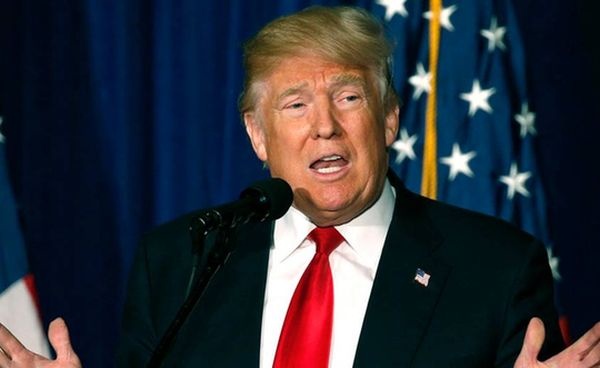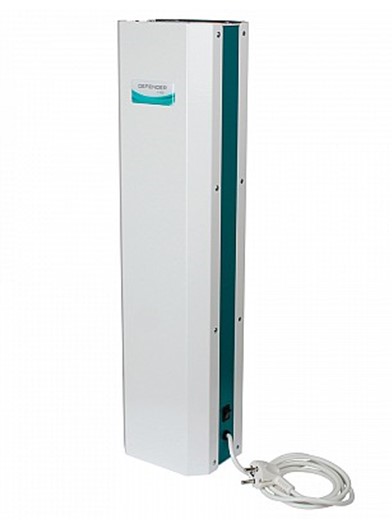How Trump's "unifying" speech turned into an attack
On July 18, the US Republican Party convention, which began on Monday, ended in Milwaukee (Wisconsin). On its first day, Donald Trump was nominated as the party's candidate for US President; on the final day, Trump, who survived an assassination attempt over the weekend, gave his first speech since the incident in Pennsylvania.
What Trump said about surviving the assassination attemptTrump began by sharing his experience of the assassination attempt, but promised that he would do it just once and would never return to this topic again because it was too painful. Just a quarter of an inch, Trump said, separated him from death - what saved him was that he decided to turn to the right to look at the table displayed at that moment. Trump heard the whistle of a bullet and felt a strong blow to his ear, touched it and saw blood on his fingers. “I immediately realized that everything was very serious. That we were attacked. And in one movement he threw himself to the ground. The bullets continued to fly as very brave Secret Service agents rushed the scene,” he continued.
According to him, the most surprising thing was that after the first shot the spectators did not rush away, but remained in their places. “This huge crowd of tens of thousands of people stood... and did not move an inch. In fact, many of them bravely but mechanically stood up, looking out for where the sniper might be. They immediately realized that it was a sniper. And then they started pointing at him,” Trump said, adding that this helped avoid a stampede and possibly additional casualties.
Trump also explained his decision to raise his fist as he left the stage - he said because his ear was bleeding so badly, some in the audience thought he was dead: "I saw it on their faces when I looked out [from behind the podium]." . They didn't know I was peeking; they thought it was all over. But I saw it and wanted to do something to let them know I was okay. I raised my right hand, looked at the thousands and thousands of people who were waiting with bated breath, and began to shout: “Fight, fight, fight!”
The most powerful moment of Trump’s speech was his phrase “I shouldn’t be here,” writes The Washington Post. In response, the crowd began chanting, “No, you have to.” "Thank you. But that's not true. And I will tell you this: I stand before you on this stage only by the grace of God Almighty,” the ex-president replied. Trump also paid tribute to slain rally participant Corey Comparatore and noted the bravery of the other two victims.
Politico noted that surviving the assassination attempt greatly changed the 45th president. More than a dozen supporters who had the opportunity to communicate with Trump after the assassination interviewed by the publication describe him as “emotional,” “peaceful,” and even “spiritual.” And a person close to the former president’s family even called Trump “humble in the biblical sense.” “In fact, when I sat next to him... for an hour and a half, there were a lot of references to faith and God, and he was very touched by it,” said another source, Congressman Jim Banks, who sat next to Trump. at one of the convention events.
How unifying was Trump's speech?Trump said after the assassination that he decided to write a new version of the speech. “My [initial] speech was incredibly rousing. She was tough—really good, really tough. [Last night] I threw it away. “I think it would be really bad if I got up on stage and started complaining about how terrible and corrupt and dishonest everyone is, even if it’s true,” he explained, saying he decided to make his speech more unifying.
At the very beginning of his speech, Trump actually stated that if he wins, he wants to become president for all Americans, since being president for only half is not a victory: “Together we will usher in a new era of security, prosperity and freedom for citizens of every race, religion, color skin and religion. The divisions and divisions in our society must be eliminated. We must eliminate them as soon as possible. As Americans, we are bound by a common destiny. We will rise together. Or we'll fall apart."
But soon Trump’s speech took the traditional direction - he moved along the “trodden path,” the Wall Street Journal notes. The Republican called illegal immigration a threat to jobs in the United States, characterized the criminal charges against himself as political revenge, and then proceeded to insult his opponents, including “crazy Nancy Pelosi.”
However, he did not mention current US President Joe Biden and his Vice President Kamala Harris by name, the Associated Press noted: “I’m going to use this word only once. Biden. I'm not going to use that name anymore. Just one time. The damage he has caused to this country is unimaginable!” This approach may be caused by uncertainty in the ranks of the Democrats themselves, some of whom are calling for Biden to withdraw from the election, AP journalists suggested. According to their hypothesis, Trump is either not sure who he will actually face in the fall, or he believes so much in his victory that he no longer considers it necessary to subject Biden to frequent attacks.
Trump also again called covid-19 the "Chinese virus" and said Democrats "used covid to cheat" in the 2020 election. Trump's advisers advised him not to focus too much on the last presidential race and his disagreement with its results, but he could not resist “one of his biggest hits,” the WSJ ironically. “We had a terrible result that we will never allow to happen again,” Trump said.
What Trump promised supportersThere was also a new portion of election promises. Trump has promised to end illegal immigration, which he calls an "invasion," by closing the border with Mexico and resuming construction of a wall along it. “The greatest invasion in history is happening right here in our country. They come from all over the world, not only from South America, but also from Africa, Asia, the Middle East <...> They are leaving prisons. They are coming out of mental institutions,” he said, comparing the migrants to the cannibal Hannibal Lecter, a character in Thomas Harris’s “The Silence of the Lambs.”
Trump also said that his administration would reduce inflation and energy prices by increasing domestic production, introduce tougher tariffs on goods from both US allies and adversaries, reduce taxes on American corporations from 21 to 15%, and “bring back American dream" and will build an American analogue of the Israeli Iron Dome air defense system.
Trump stressed that the Biden administration inherited “world peace” from him, but turned it into a “planet of war.” “I will end all international crises that this administration has created, including a terrible war involving RUSSIA and Ukraine that would never have happened if I were president. And the war caused by the [Hamas] attack on Israel, which would never have happened if I had been president. Iran was devastated. Iran had no money. Now Iran has $250 billion. They earned it all in the last two and a half years. They were broke,” he recalled.
Trump also said that Hungarian Prime Minister Viktor Orban allegedly said about him: “Russia was afraid of him. CHINA was afraid of him. Everyone was afraid of him. Nothing would have happened with him.” And then he boasted that he was “able to stop wars with just one phone call.” “I was the first president in modern history who did not start new wars,” he emphasized.
Trump promised to improve relations with North Korea and its leader Kim Jong Un if he returned to the White House: “[When I was president] I got along with him and we stopped the missile launches from North Korea. Now North Korea is acting up again. But when we return, I will establish contact with him. He would like me to come back too. I think he misses me, if you want to know the truth."
Trump began with an extremely emotional and personal account of the assassination attempt—perhaps the most moving that a US presidential candidate has ever given, sums up Politico columnist Jeff Greenfield—but once the story was over, his speech turned into an ordinary speech. at an election rally with a prepared text, which he delivered in a monotone voice similar to bus announcements, every now and then breaking into long digressions, improvised rhymes and jokes, as well as lamentations like “I’ve never seen anything like this” and “This has never happened before” " “Even after what would have been a life-changing event for anyone, Trump remained Trump,” Greenfield concluded.
usa Today columnist Rex Huppke agrees . In his opinion, at the beginning of his speech, Trump tried to present himself as a changed person and at first everything went well, but as soon as he deviated from the text on the teleprompter, his speech became like “paranoid jazz, a stream of complaints and free-form boasting.” “He was returning to the teleprompter, but it was clear that the real Trump was back - offended and angry,” Huppke gives his verdict.



























































